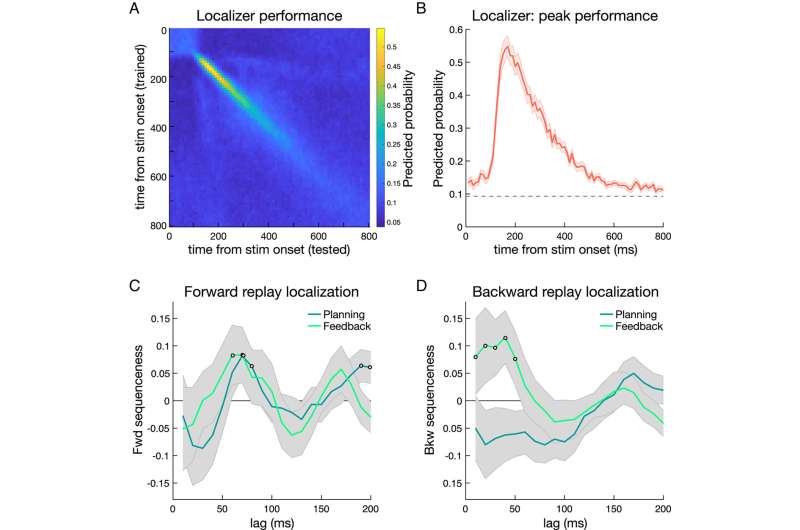
Replaying prior experiences when learning something new can improve the brain’s ability to make future plans and preserve memories of the past, finds new research by UCL neuroscientists.
The study, published in Proceedings of the National Academy of Sciences, used brain imaging techniques to detect activity in the brains of 24 participants, while taking part in a maze task.
As part of the experiment, participants were asked to make a series of choices between shapes in order to reach rewards.
Each shape would lead down a different path made up of a sequence of pictures, followed by reward points at the end. The participants’ goal was to keep track of the best path, because the reward points at the end changed over time.
The results showed that when it was most helpful to think ahead, participants replayed memories of previous experiences before making a choice.
Researchers also examined the brain activity of participants during a brief pause after receiving feedback. Here they found that participants increasingly thought about the less frequently visited paths in the maze—indicating that a memory was being preserved.
Interestingly, replay events were very fast—completing a path in a fraction of a second.
The results demonstrate how replaying experiences at different times can relate to two separate cognitive functions. However, both effects were related to increased activity in regions of the brain, including the hippocampus, which is crucial for memory.
Lead author, Dr. Elliott Wimmer (UCL Queen Square Institute of Neurology and The Max Planck UCL Center for Computational Psychiatry and Aging Research), said, “Our research found that replay may aid both key mental abilities, decision-making and memory, but at different times.
“When it’s time to make a decision, replay focused on the task at hand, supporting a role for memory in planning. But during more idle periods, replay was stronger for previous memories, which may help sustain old experiences.”
The team now hope that the findings will help future research into conditions such as mood disorders and dementia.
Dr. Wimmer said, “The brain may prioritize one function over the other based on the situation. By finding two distinct functions of replay, these results may guide future research on decision-making and memory problems in psychiatric and memory disorders.”
University College London

